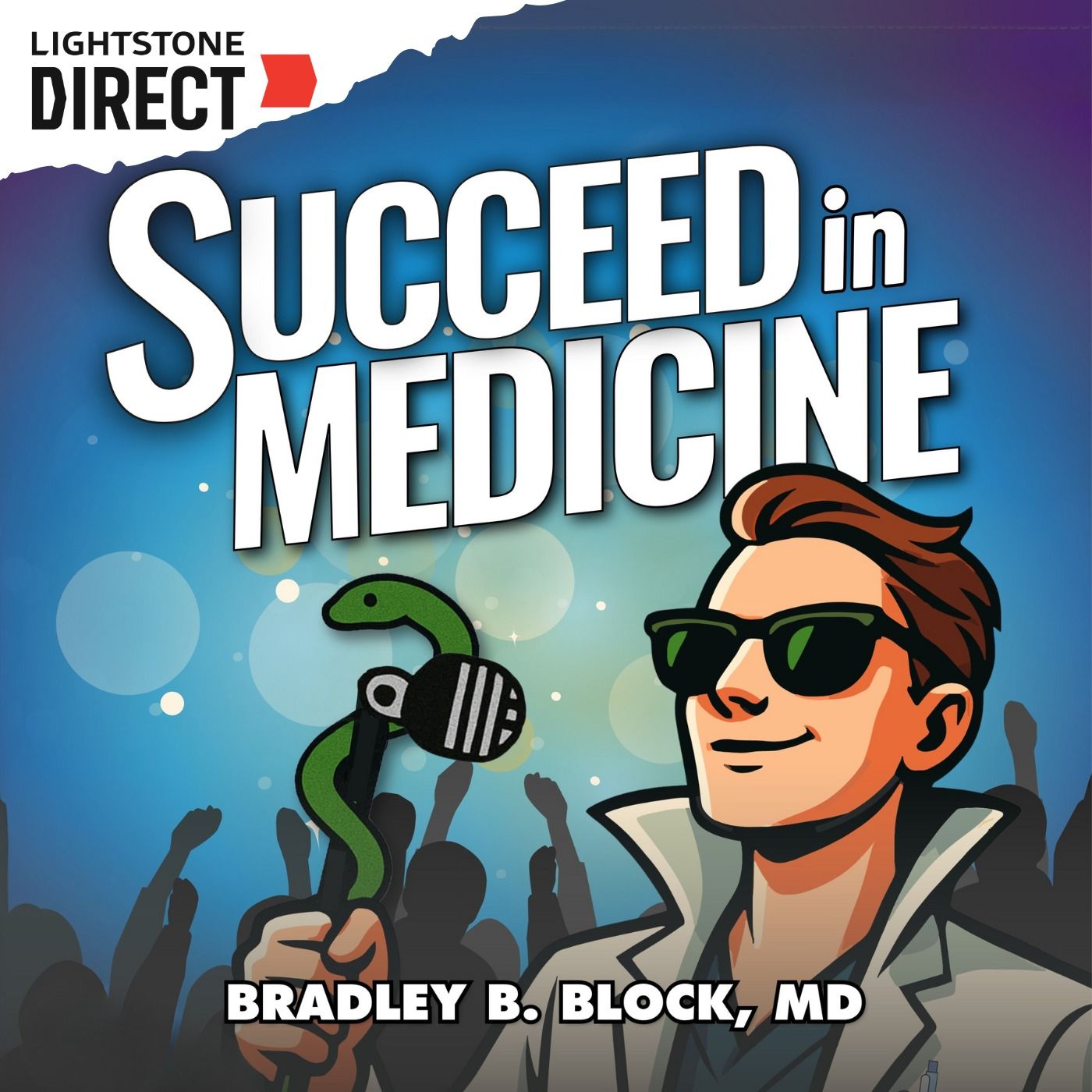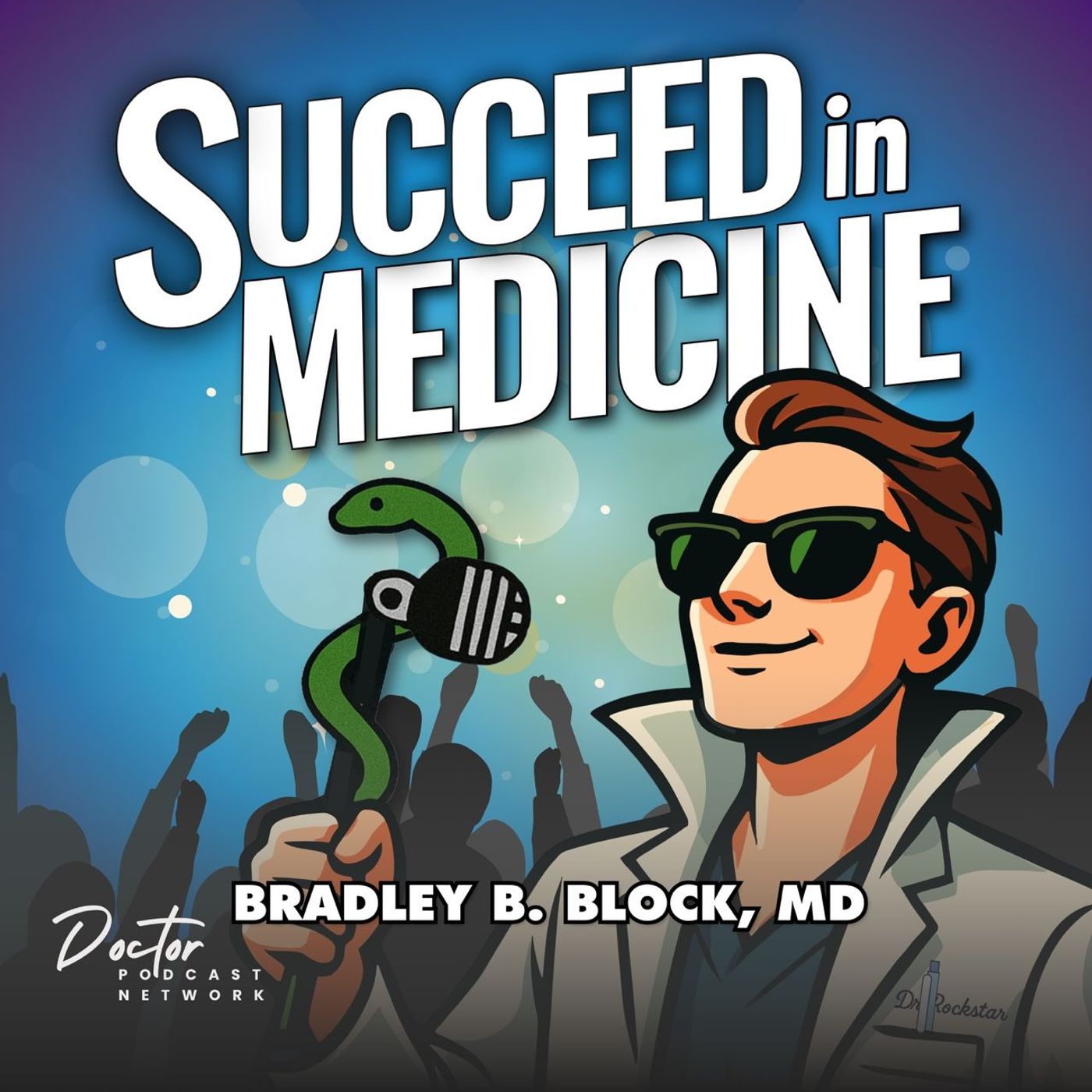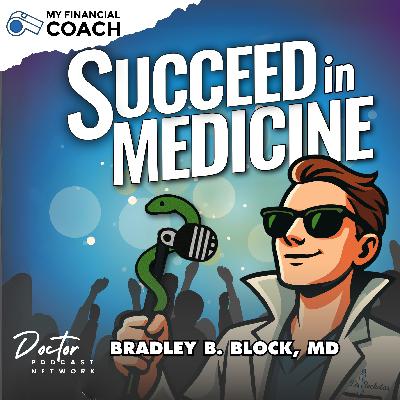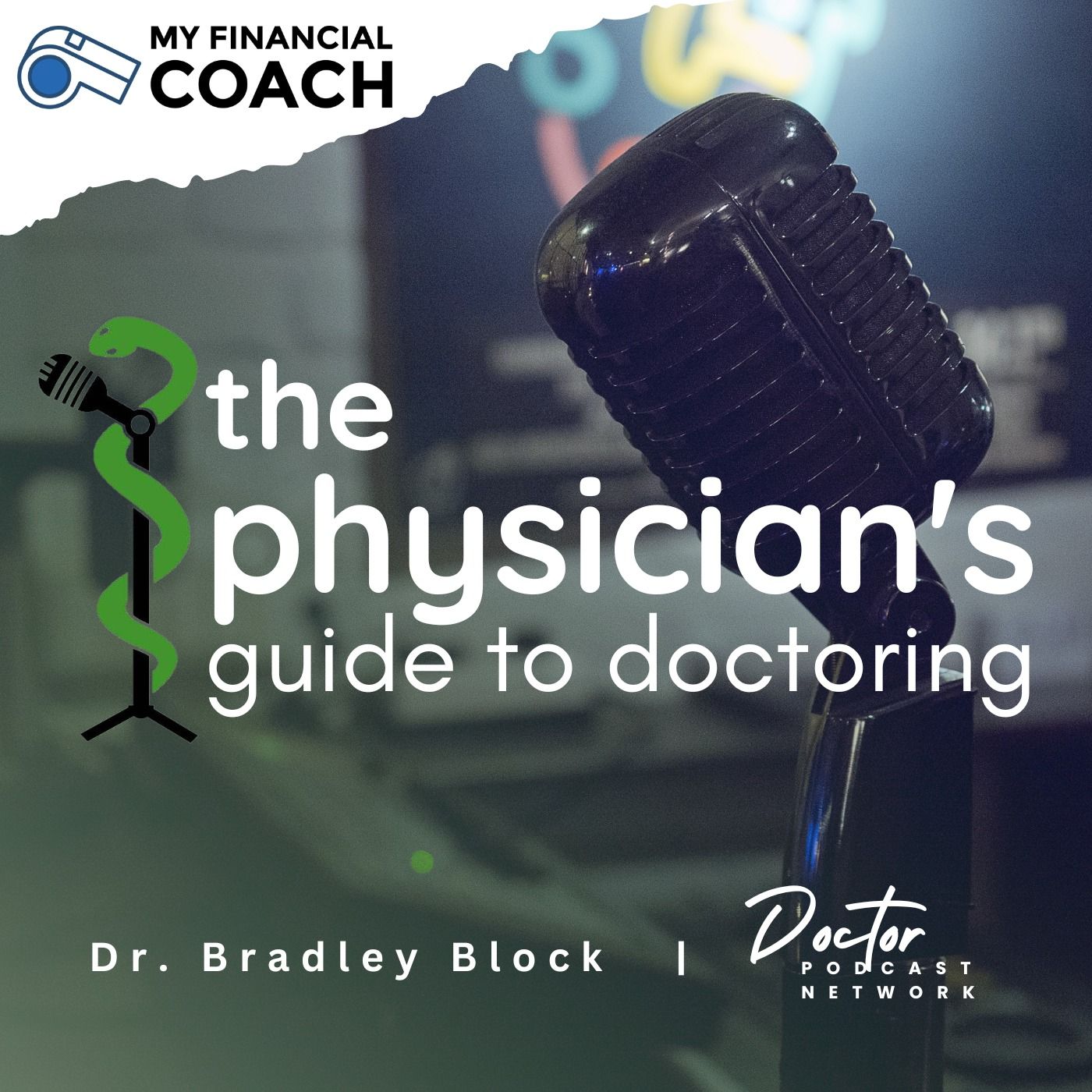Is Your Kitchen Plastic Slowly Poisoning You, with Oliver Jones, PhD | Ep491
Description
This episode is sponsored by Lightstone DIRECT. Lightstone DIRECT invites you to partner with a $12B AUM real estate institution as you grow your portfolio. Access the same single-asset multifamily and industrial deals Lightstone pursues with its own capital – Lightstone co-invests a minimum of 20% in each deal alongside individual investors like you. You’re an institution. Time to invest like one.
_________________________________
Are we all slowly “turning to plastic”?
Professor Dr. Oliver Jones says: calm down. In this myth-busting episode of Succeeded In Medicine Podcast, Dr. Jones dismantles the fear around microplastics and “forever chemicals” (PFAS) with hard science and regulatory reality.
Microplastics—defined as plastic particles <5mm—are mostly from degraded waste, not just cosmetics. Found everywhere (lungs, brains, sewage), yet the WHO and FDA find no evidence of health effects at real-world exposures. Sensational studies use unrealistically high doses; background contamination skews results. The “5 grams of plastic a week” claim? Physically impossible.
PFAS (per- and polyfluoroalkyl substances) aren’t “forever”—they degrade slowly, not eternally. Used in firefighting foam, non-stick coatings, and water-repellent gear, high occupational exposure (e.g., near military bases) warrants concern. But everyday levels? Far below harm thresholds. Drinking water guidelines are so strict that detecting any PFAS fails compliance—costing millions to treat with no proven health gain.
Dr. Jones warns: chemophobia drives reformulation (e.g., BPA → BPS) often replacing well-studied compounds with less-tested ones. Tobacco, alcohol, and UV light have proven risks—yet get less outrage. Regulators (FDA, EPA) rigorously test products; fear shouldn’t override evidence.
Physicians get a framework: teach patients dose makes the poison, prioritize proven risks (alcohol, smoking), and resist social media’s BS asymmetry—where debunking takes 10x the effort of spreading misinformation.
Three Actionable Takeaways:
- Reframe Risk with “Dose and Context” for Patients: When patients panic about microplastics or PFAS, ask: “What’s the exposure level? What’s the proven harm?” Use Dr. Jones’s analogy: a glass of wine ≠ instant cancer; a nanogram of PFAS ≠ endocrine collapse. Print a one-pager contrasting proven risks (alcohol, UV) vs. unproven (microplastics) to calm fears and build trust.
- Stop Personal Chemophobia—Model Evidence-Based Living: Keep using plastic cutting boards, microwave-safe containers, and receipts. Track one actual risk instead: cut alcohol units by 20% this month. Log mood/energy—patients notice your calm, data-driven choices and follow suit.
- Counter Misinformation with BS Asymmetry Awareness: Social media claims spread 10x faster than rebuttals. Save Dr. Jones’s line—“If it were that dangerous, we’d see it in public health data”—as a canned response. Share one FDA/WHO microplastics summary yearly with your practice newsletter to pre-empt panic.
About the Show:
Succeed In Medicine covers patient interactions, burnout, career growth, personal finance, and more. If you're tired of dull medical lectures, tune in for real-world lessons we should have learned in med school!
About the Guest:
Dr. Oliver Jones is a multi-award-winning chemist and professor at RMIT University (Melbourne). An internationally recognized expert in analytical and environmental science, he develops methods to measure chemicals in water, food, and the environment. Originally from Manchester, with a PhD from Imperial College London, he bridges chemistry, biology, and engineering to solve real-world problems. A passionate science communicator, he’s featured in The Guardian, ABC News, and The Washington Post.
LinkedIn : linkedin.com/in/droliverjones
Website : https://www.rmit.edu.au/profiles/j/oliver-jones
Instagram: https://www.instagram.com/dr_oli_jones/?locale=zh_CN&hl=af
About the Host:
Dr. Bradley Block – Dr. Bradley Block is a board-certified otolaryngologist at ENT and Allergy Associates in Garden City, NY. He specializes in adult and pediatric ENT, with interests in sinusitis and obstructive sleep apnea. Dr. Block also hosts Succeed In Medicine podcast, focusing on personal and professional development for physicians
Want to be a guest?
Email Brad at brad@physiciansguidetodoctoring.com or visit www.physiciansguidetodoctoring.com to learn more!
Socials:
@physiciansguidetodoctoring on Facebook
@physicianguidetodoctoring on YouTube
@physiciansguide on Instagram and Twitter
This medical podcast is your physician mentor to fill the gaps in your medical education. We cover physician soft skills, charting, interpersonal skills, doctor finance, doctor mental health, medical decisions, physician parenting, physician executive skills, navigating your doctor career, and medical professional development. This is critical CME for physicians, but without the credits (yet). A proud founding member of the Doctor Podcast Network!
Visit www.physiciansguidetodoctoring.com to connect, dive deeper, and keep the conversation going. Let’s grow!
Disclaimer:
This podcast is for informational purposes only and is not a substitute for professional medical, financial, or legal advice. Always consult a qualified professional for personalized guidance.
Hosted by Simplecast, an AdsWizz company. See pcm.adswizz.com for information about our collection and use of personal data for advertising.






















